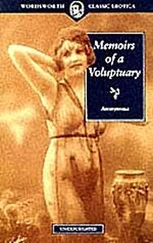Suddenly, in a moment of surprising lucidity, Della looked up from her plate and stared at her daughter with sad eyes. “You must let me go, Gladys,” she said earnestly. “It’s time for me to go. I want to go.” Mother and daughter looked intently at each other for a long, infinitely heartbreaking moment. Then, as the tears began to roll down Gladys’s face, Della went back to her meal.
On August 4, 1927, Della Monroe was taken to the Norwalk State Hospital. Nineteen days later, on August 23, she died. She was buried in the Rose Hill Cemetery in Whittier, California, next to her first husband, Otis. She was just fifty-one.
Living with the Bolenders
B y the time she was three, in 1929, Norma Jeane Mortensen was an extraordinarily pretty girl with honey blonde curls and baby blue eyes. Hers was a face that somehow seemed perfect, as if carved from pale, polished marble. It was difficult for anyone to just pass her by without taking notice. Interestingly, despite all of the confusion around her during these early years, she seemed remarkably well-adjusted to her life at the Bolenders’. She was not unhappy. “We treated her like our own child,” Ida Bolender said in 1966, “because we loved her.” However, in years to come, writers would paint a very bleak picture of this time in Marilyn’s life.
“I guess there was an effort to sensationalize things,” says Nancy Jeffrey, the only surviving member of the foster Bolender siblings. “Because of the way things turned out for Norma Jeane, every one of her biographers over the years has wanted to make it sound like it was awful at our home, but I’m the only one of us still alive and I can tell you that it wasn’t. Norma Jeane was happy in our home. It was a loving family, just a happy home full of children. Mother was very industrious, too. She made all of our clothes for us. She loved us beyond words and she hung on to us. She didn’t want anything to happen to us. Whenever we left the house, I don’t care where we were going, she would say, ‘Stop just for a second,’ and she would then say a quick prayer for our safety.”
Of course, a big part of the problem was that Marilyn constantly referred to her impoverished background when she became famous, and very often made the circumstances of her first seven years seem much worse than they were. Jeffrey says that when Ida was alive, she was “very upset” by the mischaracterizations of Norma Jeane’s time in the Bolender household.
On Ida and Wayne Bolender’s two-acre agricultural property in Hawthorne, they raised chickens and goats and grew vegetables. “We grew up on fresh tomatoes, corn on the cob, watermelon, green beans, and squash,” recalls Nancy Jeffrey. “We also had trees that were full of plums, apples, and lemons. There was one huge fig tree that Norma Jeane and Lester—our foster brother who was the only one Mother and Daddy actually adopted—loved to climb. They would drag blankets up there and make a fort for themselves. We also had chickens and rabbits, and Daddy even bought a goat because a couple of us were allergic to cow’s milk as little children. It wasn’t necessary to go to the store often, but on those occasions when we did go Daddy would drive us in his Model T Ford and we would wait in the car while Mother shopped. We played guessing games of the surrounding sights, sang favorite songs, or Daddy would tell us stories. Another childhood memory was that on rainy days we had to stay in the house, so we would make a fort under the dining room table, leaning the top of the chairs around it for rooms. Then we would cover it all with blankets. Mother even let us eat lunch under there at times. Norma Jeane loved that.”
The house itself, at 459 East Rhode Island Street, *was small and cramped, a ramshackle-looking structure in the middle of what must have seemed to little children to be… nowhere. During the seven years Norma Jeane would live there, quite a few children came and went, but there were five foster children who were there most, if not all, of the time: the aforementioned Lester, plus Mumsy, Alvina, Noel, and Nancy. “Around the time of the Depression, a lot of parents simply didn’t have the resources to care for their own children,” recalls Nancy Jeffrey, “so they would drop them off in foster homes until they were ready to take proper care of them. It was a common thing.” From all accounts, Norma Jeane got along well with all of her foster siblings, especially with Lester, who was two months younger.
Wayne Bolender was an amiable and openhearted fellow who was pleasant to everyone and had always eagerly embraced the idea of raising foster children. He was wiry, with light gray eyes behind thick tortoiseshell glasses, and the most prominent feature on his face was his very large nose. He had a jolly air about him. Sturdy and dependable, as a mail carrier for the United States Postal Service he would work the same route for thirty-five years (48th Street and Vermont Avenue in Los Angeles). “He loved being with the kids,” says one source who knew the Bolenders, “and the kids loved him. He was devoutly Baptist, like Ida. He had a little printing press in the house and he would make prayer cards for the church with it.”
Though they shared many of the same ideals, Wayne and Ida didn’t have much of a relationship. He and Ida rarely spoke and when they did it was usually Ida chastising him for some perceived transgression or insisting he do something he obviously did not want to do. He was clearly intimidated by her and, some thought, maybe even afraid of her. Indeed, she ran her household with the stringent rules and regulations of an Old World orphanage, taking her responsibility to the foster children quite seriously.
Much has been made over the years of Ida and Wayne’s fanatical religious leanings. It’s been written that they were zealots about their Protestant faith. “First of all, we were Baptists,” says Nancy Jeffrey. “Though I think along the way Mother did belong to a United Pentecostal Church. We went to Sunday school on Sunday mornings and then Wednesday night services. I don’t think that was too much. Mother sometimes did the cooking for big church dinners—there would be a big dinner at the church for the congregation—or sometimes many of them would come to our home. I’m not sure how it evolved that my parents were religious fanatics. Maybe it was just part of the myth that was created around Norma Jeane when she became Marilyn Monroe. Mother taught us to love the Lord and, by extension, to love each other. It was really the only foundation Norma Jeane ever had, and I think it did her a lot of good in her life. I know that was Mother’s intention.”
Supposedly, at least according to the stories written about the adult Marilyn Monroe, she was forced to memorize the following prayer when she was about four—and she would be quizzed often to make sure she remembered it: “I promise, God helping me, not to buy, drink or sell or give alcoholic liquor while I live; from all tobaccos I’ll abstain and never take God’s name in vain.” Her foster sister Nancy Jeffrey scoffs at the notion. “I never heard that prayer in my entire life. I’m not sure that there’s anything wrong with it, anyway, even if Mother had made us say it. But she never did.”
Another story has it that going to the movies was out of the question because there was no telling what Norma Jeane would be exposed to in the theater. In fact, Marilyn once recalled Ida having told her, “If the world came to an end with you sitting in the movies, do you know what would happen? You’d burn along with all the bad people. We are churchgoers, not moviegoers.” Years later, Marilyn would say, “I don’t think it’s right to use God to frighten a child like that. I just think that was an awful thing for her to do to a child.”
Читать дальше












